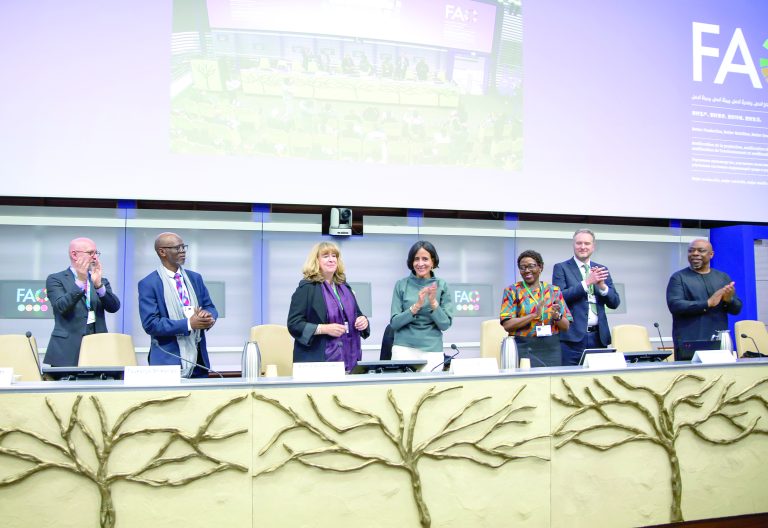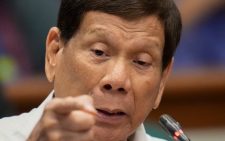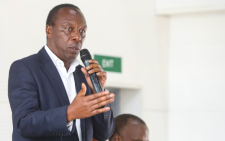Nations adopt new Cali Fund for sharing benefits of nature

The quest for the protection of nature received a major boost on Tuesday when member states of the United Nations Convention on Biodiversity (CBD) launched a special fund to usher in a new era for biodiversity finance.
Establishment of the Cali Fund for the Fair and Equitable Sharing of Benefits from the use of digital sequence information (DSI) is a major milestone at the world’s most important meeting seeking to create harmony with nature and save humanity and planet Earth from a looming climate catastrophe.
The 16 CBD summit, also known as the UN Biodiversity Conference, or COP16, resumed at the Food and Agriculture Organisation (FAO) headquarters in Rome, Italy. This is after talks were suspended on November 2 2024 in Cali, Colombia for lack of quorum following tense negotiations that ended in a deadlock.
Progress stalled in Cali on several issues, particularly on finance for biodiversity. Old divisions emerged revolving around the issue of finance to fund the protection of nature and humanity from biodiversity loss.
However, countries agreed on an expanded role for Indigenous Peoples and Local Communities (IPLC) in saving biodiversity, and reached a ground-breaking agreement on the operationalisation of a new global mechanism to share benefits from digital genetic information, which was ratified in Rome this week with the launch of the Cali Fund.
It’s a major development since the Cali Fund will mobilise new streams of funding for biodiversity action worldwide, in support the three objectives of the CBD; conservation of biological biodiversity, sustainable use of its components, and the fair and equitable sharing of the benefits arising from the use of genetic resources.
Universal masterplan
Recognising their role and contributions as custodians of biodiversity, 50 per cent of the resources from the Cali Fund, which will receive contributions from private sector entities making commercial use of DSI, will be allocated to the self-identified needs of IPLCs, including women and youth.
The disbursements of the fund will also serve to boost the implementation of the Kunming-Montreal Global Biodiversity Framework (KMGBF), the universal masterplan to halt and reverse biodiversity loss adopted in Montreal, Canada in 2022 under the CBD.
Notably, the implementation of the KMGBF will be achieved by supporting the delivery of National Biodiversity Strategies and Action Plans (NBSAPs) by developing country and by bolstering scientific research on biodiversity, and bridging existing gaps in the way countries generate, access, use, analyse and store DSI.
In line with decision adopted in Colombia, the Cali Fund will be hosted by the Multi-Partner Trust Fund Office (MPTFO) in a partnership between UNDP, UNEP, and with the secretariat of the CBD hosting the Cali Fund secretariat. A memorandum of understanding (MoU) reflecting this institutional arrangement was signed during Wednesday’s launch ceremony.
“I commend the CBD secretariat for the hard work that went into preparing the Cali Fund launch a mere four months after the adoption of the decision operationalising it,” said COP16 President Susana Muhamad, who acknowledged that Colombians are proud that the achievement under the CBD saw the light of day at ‘La COP de la gente in Cali’.
The UNEP Deputy Executive Director Ellizabeth Mrema called the day’s launch a “culmination of multilateralism that delivers”.
“The ball is now in in the court of businesses around the world. Those who pay into the Cali Fund will go down in history as pioneers and will reap the benefits as the public increasingly recognises the importance of giving back to nature,” she added.
The director of UNDP’s Sustainable Finance Hub, Marcos Neto concurred, adding that the success of the Cali Fund will be critical for providing finance to people on the ground who are custodians for species and genetic diversity.
“We are proud to be a founding partner for this ground-breaking fund. The MPTFO, hosted by UNDP, brings a transparent, dynamic and collaborative approach to running the fund for nature and for people,” he added.
MPTFO’s Executive Coordinator, Alain Noudehou said the launch of the Cali Fund goes beyond the establishment of a financial instrument, as it signals a new era of collective action in support of biodiversity worldwide.
The trust fund office, he confirmed, was proud to serve as the administrative agent for the Cali Fund and they looked forward to supporting the efficient realisation of its objectives as a UN centre of expertise on pooled funds.
Major win
The Executive Secretary of the CBD, Astrid Schomaker, described the Cali Fund as something truly promising for biodiversity, for those who protect it.
“For the first time since the inception of the convention, a global fund under the COP will receive contributions from the private sector in the form of levies from business income generated thanks to the use of digital sequence information on genetic resources,” she said, further calling it an eloquent and concrete expression of business commitment to give back to nature, and a major win under the CBD.
The Cali Fund is part of a multilateral mechanism on the fair and equitable sharing of benefits arising from the use of digital sequence information on genetic resources adopted at COP15 in Montreal, Canada alongside the KMBGF. Two years later in Cali, parties to the CBD reached a historic consensus on the operationalisation of the multilateral mechanism, including how the Cali Fund will function. That is where the Cali Fund acquired its name.
The multilateral mechanism that encompasses the Cali Fund has been designed with versatility in mind, to adapt to future scientific innovations, financial tools and shifting needs for biodiversity protection and conservation. Its inclusive and transparent governance model will ensure its efficiency and efficacy.
Established n 1992 during the ground-breaking UN Conference on Environment and Development, popularly known as the Rio “Earth Summit”, the CBD is an international treaty for the conservation of biodiversity, the sustainable use of the components of biodiversity. It also works towards the equitable sharing of the benefits derived from the use of genetic resources.
With 196 member states, the CBD has near-universal participation among countries. It helps to address threats to biodiversity and ecosystem services through scientific assessments, the development of tools, incentives and processes, the transfer of technologies and good practices and the active involvement of relevant stakeholders, including IPLCs, youth, women, NGOs, sub-national actors, and the business community.
The Cartagena Protocol to the CBD that entered into force in 2003 and currently encompassing 173 member states aims to safeguard biological biodiversity from potential risks posed by genetically modified organisms (GMOs) resulting from biotechnology.
It focuses on transport, handling and use of living modified organisms, considering their potential adverse effects on biodiversity and human health. It also has a supplementary protocol on liability and redress.
The Nagoya Protocol to the CBD entered into force in 2014 and has 141 parties. It provides a transparent bilateral legal framework to providers and users for the fair and equitable sharing of benefits derived from genetic resources.
The Kunming-Montreal Global Biodiversity Framework was adopted following a four-year consultation and negotiation process. This historic framework, which supports the achievement of the Sustainable Development Goals (SDGs) sets out an ambitious pathway to reach the global vision of a world living in harmony with nature by 2050.








